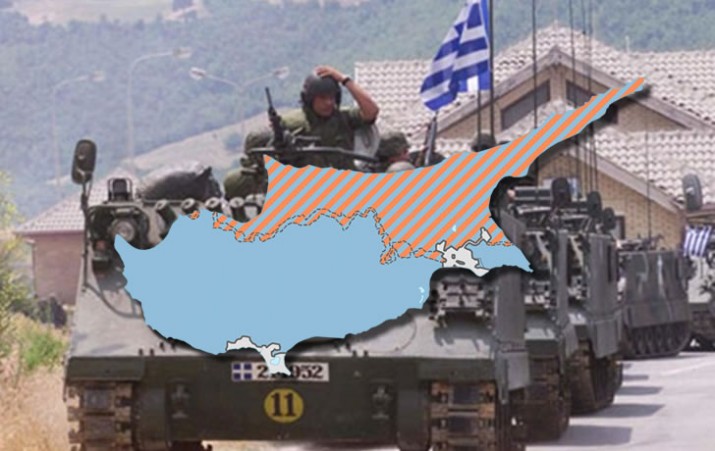Secret British documents reveal Athens’ proposal to send troops in response to Turkish Cypriot independence declaration
By Michael Daventry
Greece was ready to send troops to Cyprus in response to the Turkish Cypriots’ declaration of independence in 1983, newly declassified documents have disclosed.
Spyros Kyprianou, then president of the Greek-led Republic of Cyprus, told British prime minister Margaret Thatcher that ministers in Athens had made him an offer of military support just hours after the Turkish Republic of Northern Cyprus was proclaimed in Nicosia.
The revelation came in a hastily-arranged meeting between Thatcher and the president in London, according to a British record of their conversation that was made public on Friday.
“He [Kyprianou] had been told that if he felt that Greek troops should go to Cyprus, and he so requested, the Greek Government was ready to meet his request,” the declassified note, seen by Londra Gazete, said.
‘GREAT DIFFICULTIES’ GOING PUBLIC
Kyprianou said if knowledge of Greece’s offer was made public there could be “great difficulties” that could cost him his job, adding: “It might appear that Greece was prepared to go to the bitter end.”
The note continued: “If the news leaked that the Greek Prime Minister had offered to send troops to Cyprus – and [Kyprianou] then had to say that he was still studying the offer – he would be forced to resign.”
Spyros Kyprianou (left) with Turkish Cypriot leader Rauf Denktaş in a meeting with UN Secretary-General Kurt Waldheim in 1979
Thatcher is recorded as commenting that such action would be “a very big decision” and that “the hazards of military intervention should be avoided”.
Dr James Ker-Lindsay, from the London School of Economics, said the declassified documents offered an insight into events following the Turkish Cypriot declaration of independence.
GREECE’S INTENTIONS
“It is a terribly interesting revelation about potential Greek troops, but it doesn’t quite stack up,” he said.
“He [Andreas Papandreou, the prime minister of Greece in 1983] was hawkish, no doubt about it, but a military response seems to be a very odd reaction. What did he want to do with the troops – to go and take back the north, or to keep them in the south?
“I think Kyprianou was using it to increase the pressure on London to act – which they clearly already were by lobbying other countries not to recognise the TRNC.”
KYPRIANOU THE PEACEMAKER
Turkish Cypriots unilaterally declared independence on 15 November 1983, nine years after Turkey invaded the island in response to a coup backed by Greece.
The secret note, part of a tranche of papers declassified by British Foreign & Commonwealth Office on 3 July 2015, appears to suggest Kyprianou prevented an escalation of military tension in Cyprus at that time.
“There was a strong feeling in Greece that, following Greece’s inadequate response to the events of 1974, inaction or indifference on the part of the present Greek Government would not be tolerated by public opinion,” says the note of the meeting between Kyrianou and Thatcher, which took place on 17 November.
It continued: “He was not suggesting that the Greeks felt stronger than the Greek-Cypriots but if the quick reversal of the Turkish-Cypriot move was not achieved, it was apparent from his talks with the Greek Government that they were seriously considering severing diplomatic relations with Turkey.”
BRITISH ATTEMPTS TO PREVENT RECOGNITION
Turkey was taken by surprise by the declaration of independence, instigated by the Turkish Cypriot leader Rauf Denktaş, but gave the country full diplomatic recognition later the same day.
Although no other country has ever followed suit, the papers declassified by the Foreign Office reveal concerns that more nations were preparing to recognise the breakaway state.
The concerns were great enough for the foreign secretary of the time, Geoffrey Howe, to instructed diplomatic missions to lobby six Muslim-majority countries.
In a diplomatic note sent to British ambassadors in Pakistan, Saudi Arabia, Jordan, Malaysia, Libya and Bangladesh on 18 November, he wrote: “Unless you consider it would be counterproductive to do so please approach the government to which you are accredited at a time you consider appropriate and encourage them not to recognise a ‘Turkish Republic of Northern Cyprus’.”
